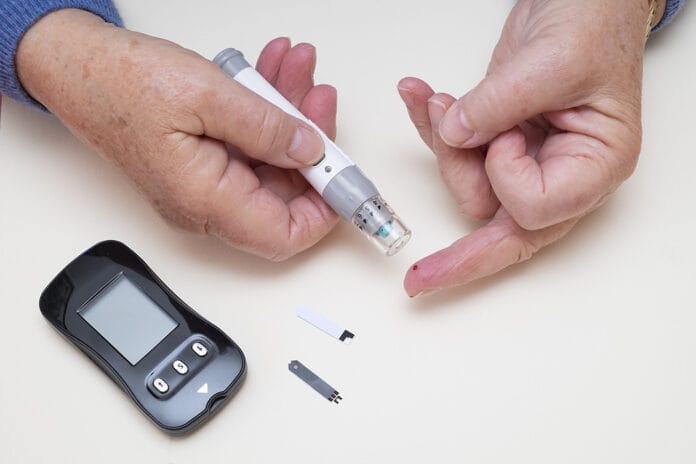More than 34 million Americans have diabetes, according to the Centers for Disease Control and Prevention. Since the disease is so prevalent among adults and young children, scientists in the dental community are very focused on understanding how the disease may impact a patient’s oral health or the effectiveness of treatment plans. Recently, a team of researchers located in Germany conducted a systematic review and meta-analysis to examine whether type 2 diabetes had an adverse effect on dental implants. An article based on their findings titled, “Impact of hyperglycemia on the rate of implant failure and peri-implant parameters in patients with type 2 diabetes mellitus,” was published in the Journal of the American Dental Association.
About Type 2 Diabetes and Hyperglycemia
Type 2 diabetes is a chronic health condition that develops due to high blood sugar levels (better known as hyperglycemia). When there’s too much sugar or glucose in the bloodstream, the pancreas is unable to make enough insulin to regulate it. Eventually, the cells within the body’s organs can become resistant to insulin and won’t absorb the sugar to use it as fuel.
Type 2 diabetes can have a lasting impact on the immune, nervous, and circulatory systems if left untreated. Hyperglycemia can also eventually cause a diabetic coma called ketoacidosis due to the build-up of ketones or waste in the blood due to the body’s inability to expel it through urine.
There are multiple signs that someone may have type 2 diabetes. Common symptoms include:
- Weight loss
- Blurry vision
- Increased thirst and hunger
- Frequent urination
- Chronic Fatigue
- Slow-healing wounds
- Numb, tingling hands or feet
- Dark skin patches
Type 2 diabetes was originally categorized as adult-onset diabetes, but now young children are diagnosed with the disease due to poor nutrition and lack of physical exercise. Although diabetes is currently incurable, people can typically manage their condition by incorporating more exercise and healthy food into their daily lifestyle. Medical professionals may also use diabetes medications or insulin therapy.
About the Study
The authors of the study decided to use a systematic review and meta-analysis to examine the impact of hyperglycemia on dental implants. They searched four different databases to see if the common health condition affected the patient’s dental implants in previous clinical studies. Overall, the two scientists compared the rates of implant failure and peri-implant bleeding on probing (BOP), probing depth (PD), and peri-implant bone loss (PIBL) among nondiabetic patients and others who were diagnosed with type 2 diabetes mellitus. They also analyzed the patient’s glycemic level to see if it caused them to develop peri-implant inflammation.
Nine clinical studies fit the parameters of their search criteria. After they found them, they closely examined the rate of implant failure and didn’t notice a significant difference between type 2 diabetic and nondiabetic patients. The probability that the chronic disease actually impacted implant failure was measured at a minuscule rate of (P = .46), compared to a (P = .1) value when it came to the patient’s probing depth. However, there was a bigger difference when it came to the patient’s peri-implant bleeding on probing since it achieved a (P < .00001). The scientists also noted that nondiabetic patients experienced less peri-implant bone loss at (P = .02). High glycemic levels did not influence the bleeding, probing depth, or peri-implant bone loss values among diabetic patients.
In Conclusion
Based on this research, dental professionals can advise their patients that their type 2 diabetes mellitus should have limited to no impact on the success rate of their dental implant. However, the dentists can warn them that their medical condition may be a risk factor that could contribute to peri-implant bone loss in the future.











